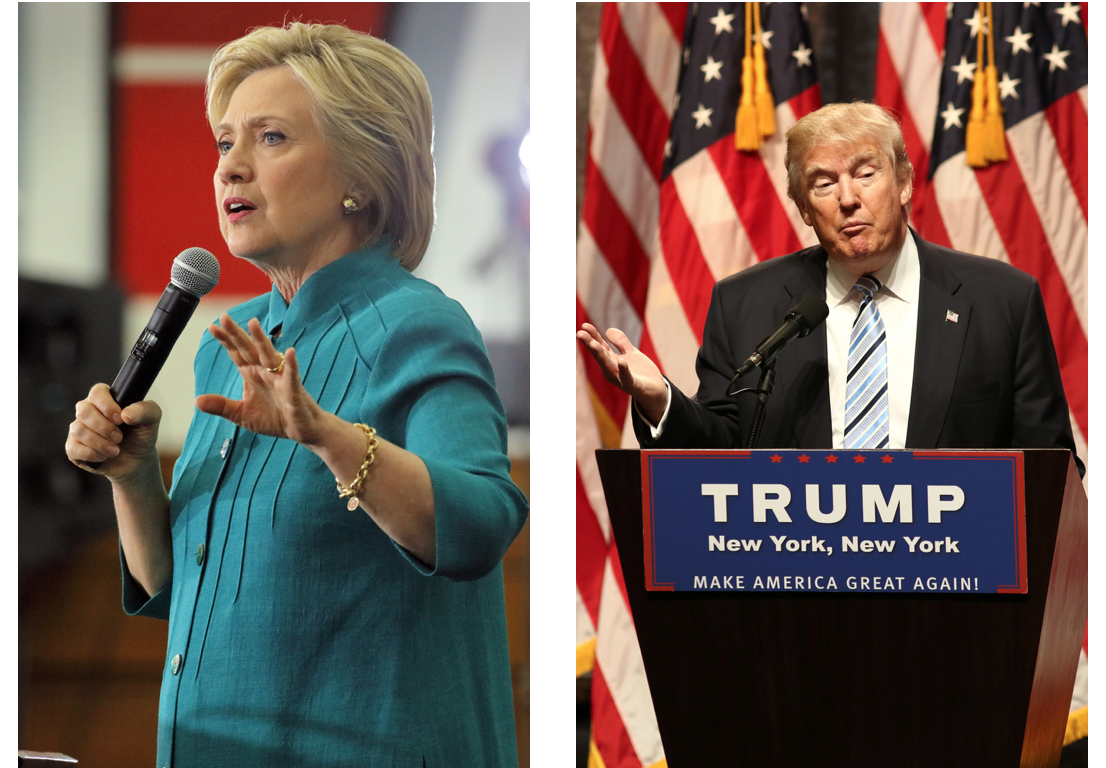Science of Politics: Why Trump and Clinton Should Be Nice to Each Other

Here's a tactic you likely won't see much of during this year's electoral matchup between Donald Trump and Hillary Clinton: Complimenting the opposition.
Still, saying nice things about a political opponent can actually be beneficial for one's own image, new research finds.
A strategy of flattery is "very rare," said study researcher Nicoletta Cavazza, a professor of communication and economics at the University of Modena and Reggio Emilia in Italy. But previous studies have found that going negative — insulting the opposition — can make a candidate look bad.
In the new study, Cavazza looked at whether going positive could rebound on a candidate as well. [Oh Snap: 10 Memorable Political One-Liners]
Positive politics
To test the idea, Cavazza recruited 92 Italian university students and had them read fictional political speeches that were identical except for one line. In the neutral condition, students read a speech that said, "I believe that my competitor will agree with me about the need to change this situation." In the positive condition, this sentence was slightly tweaked to include a compliment: "I believe that my competitor, who is an upright and smart person, will agree with me about the need to change this situation."
Cavazza then gathered information on whether the study participants saw the candidate speaking as competent, trustworthy and persuasive.
She found that flattery increased participants' impressions of the candidate as trustworthy. And that extra glow of trustworthiness ultimately translated to people being more likely to vote for the complimentary speaker. This was true whether the politician in the experiment was male or female, Cavazza reported online July 11 in the journal Social Influence.
Sign up for the Live Science daily newsletter now
Get the world’s most fascinating discoveries delivered straight to your inbox.
Earning trust
There are two likely reasons for the effect, Cavazza said. The first is that the old playground rhyme, "I'm rubber and you're glue / Whatever you say bounces off me and sticks to you," is more true than the kids who sing it realize.
"When we observe somebody speaking about somebody else, we tend to attach to the source the same qualities" that she attributes to the person she is speaking about, Cavazza told Live Science. "For example, if I say a woman is very kind, I induce the observer to think I am kind, too."
This boomerang effect is why mudslinging in politics gets everyone dirty, Cavazza said. In general, research has found that political incivility decreases the public's trust in politicians.
Another factor at play is likely the fact that a candidate speaking warmly of the opposition is acting against his or her own interests. This makes them seem more reliable, Cavazza said.
"Take, for example, a grocer who says, 'Do not buy the strawberries. Today, they aren't fresh enough,'" she said. "He surely earns your trust!"
And although it seems that Trump and Clinton may be likely to spend this election season at each other's throats, Cavazza said the positive approach could work for even the bitterest of rivals. Her study was done in the context of Italian politics, which are notoriously vicious and frequently hinge on "reciprocal accusations and insults," Cavazza said.
Her follow-up research, yet unpublished, has found that flattery is a win-win scenario for the candidate. She added: It gives people a good impression of them and does not actually make people judge their rival more positively.
"I think that it is time for politicians to pay attention to positive communication," Cavazza said, "instead of becoming more and more verbally aggressive."
Original article on Live Science.

Stephanie Pappas is a contributing writer for Live Science, covering topics ranging from geoscience to archaeology to the human brain and behavior. She was previously a senior writer for Live Science but is now a freelancer based in Denver, Colorado, and regularly contributes to Scientific American and The Monitor, the monthly magazine of the American Psychological Association. Stephanie received a bachelor's degree in psychology from the University of South Carolina and a graduate certificate in science communication from the University of California, Santa Cruz.










